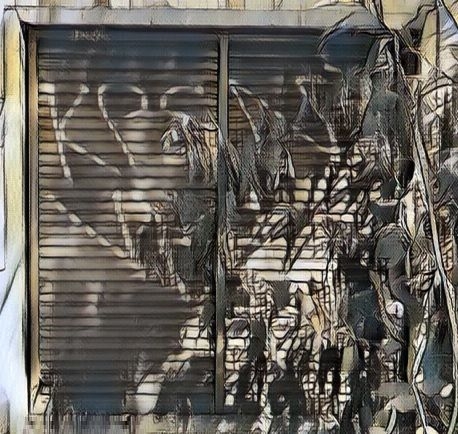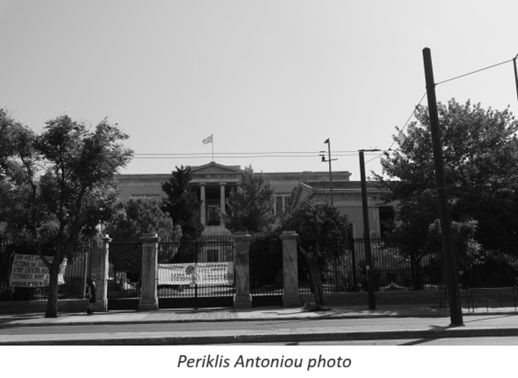Jamais plus nous ne boirons si jeunes, we will never drink again, like when we were young. This is what the French proverb says, and I think that figuratively it is true for the most light and euphoric of things to the heaviest, most painful and important ones.
In the half century that passed from the Polytechnic uprising in November 1973, we did not embrace again with many of our comrades of back then. Best of friend day and night, everywhere, in the auditoriums, in the demonstrations chanting in unison, in the safe houses or the makeshift hideouts, some being outlaws, others partially outlaws, in constant hypertension, listening intently, whispering and gesturing, communicating through pantomime in constant fear.
Carefreeness, partying, and unconcern were words that had no place in the vocabulary of our student life. We went through it with an informant on our track.
Yet, we lived the night of superlatives, during which in very little time – only a few hours – we became the most unbowed, selfless, solidary, united against the most wretched fascists that came riding their tanks.
It was the night of a blinding flash of consciousness, exaltation and transcendence.
We were separated from our comrades, as was to be expected, by the “normality” of lawfulness, and the many and widely different paths. Happiness, relief, new opportunities, children, emphasis on personal and professional life. We were divided, openly now, into political parties and organisations, some of us quit altogether, we expanded our libraries, we became cinephiles, we invented arguments for many things, we were optimistic regarding some things and pessimistic regarding others.
Everything was in the open now, everything except for one thing, for quite a few of us, I think. Maybe some of us were left with a void inside, following the astounding experience that revealed, stirred, combined, and enriched so many emotions.
We participated in an event where people were killed and injured; many people were killed, and many people were injured, and until today, those of us that were not killed by pure chance, may be thinking of those who died there. Surviving by chance, almost having been killed is hard to deal with.
When time passes and mourning is no longer obvious by the red eyes, swollen from crying and the gruelling sleeplessness, “almost” becomes a psychological issue that is not visible, but is deeply rooted in existence, where sorrow finds a warm nesting place, and grief becomes the self-proclaimed leader.
That is one of the reasons why our generation worshipped antidepressants, I think.
On a more general level, I believe that the intake of the post-dictatorship reality was definitely connected to personal experience during the dictatorship, and mainly during the three days of the uprising. It was an obvious connection with articulation in small gatherings, or in public tributes and the Media, but also a secret one, a reckoning with one’s inner self.
The latter one is more complex, probably entailing many meanings, and definitely not finalised. The connection is sometimes that of silently, but consciously paying tribute; sometimes that of seeking the vigour and resistance, or that of attempting to draw self-respect; sometimes it is that of renouncing the experience and the self, or of a violent intervention on memory so that it may tidy up, repair, unearth, or maim aspects that lie in the shadows that would be worthy of attention, or soften sorrows, erase as much as possible of the unbearable experience – if it is even possible, which it isn’t –, as every reminder and every new narration brings it back to life; the recollection of woes makes you suffer when remembering old wounds.
After all the past is not the farthest point, especially when an indestructible, monumental individual and collective experience stands there.
Personally, I try not to forget certain things, and to forget others.
It was not possible for us to not go to the Polytechnic uprising. We were carried there by the wave and our soul. It was not possible for the occupation to not happen.
Those of us that had been in the Secret Police’s, and the Military Police’s holding cells, and the many other similar dens of the dictatorship, and had been subjected to the brutality of physical and psychological torture, having been turned into Guinea pigs for the crushing of the tangible and intangible rights of human existence, could not believe that the dictators were dreaming of liberalisation, conflict resolution and other such sappiness.
They proved us right, by murdering unarmed civilians, and a few months later, by condemning Cyprus as well, with their actions.
Obviously, reflections and testimonies, especially those coming half a century later, are draped in many clothes, taken from the hangers of the closet of time.
However, I feel that even if we lost touch with each other afterwards, we were forged so much in that crazy daydreaming, pride, and camaraderie, that we truly came to love one another forever.
Friday night in the front courtyard, noises and two images/icons.
The first, the line of bare adolescent chests; the chest of the boys against the metal fence. I can still hear their heartbeat, as loud as the frenzied galloping of horses on the open fields. A sense of liberty.
The second, a dismembered leg, with its foot hanging from a piece of skin, swirling and spraying around the blood of the student that was lying on the gurney.
I never tried to find out what happened to that lad. Maybe consciously, so that I could fantasise that the doctors managed to save his poor leg.


